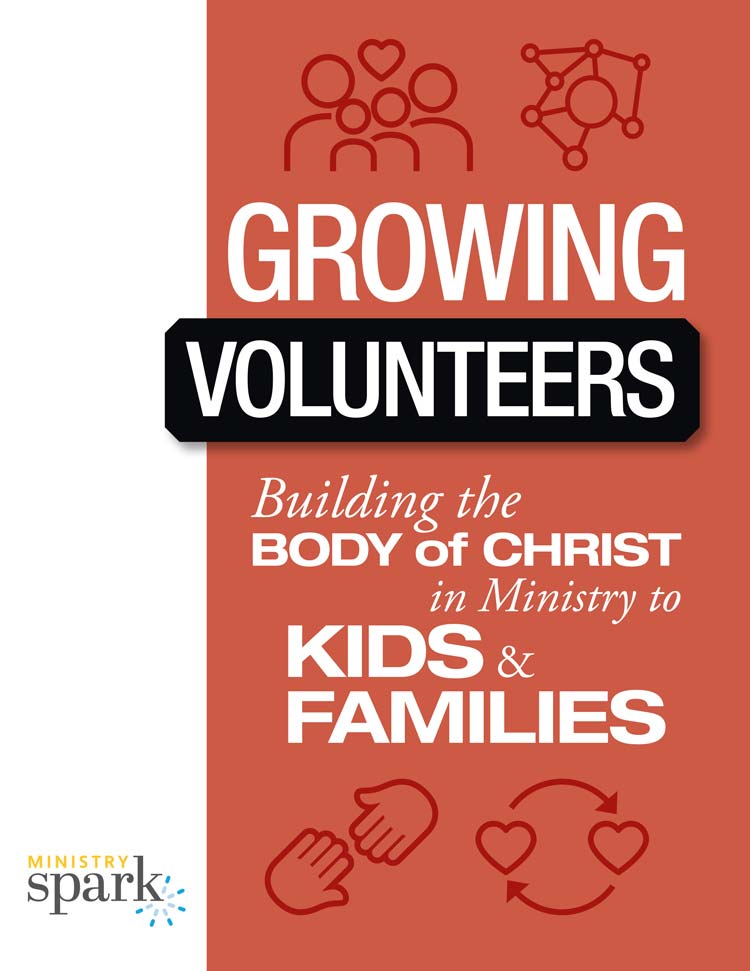Here’s 10 Commandments for the leaders and teachers in your ministry! Use these to help shape the way your volunteers view and approach how they lead the kids in your ministry.
1. Understand that Teaching Is Ministry
Sharing eternal truths with the next generation is a privilege and a calling. The time in a church classroom is some of the most important and precious time in preparing for this world and the next. Pray for children in your lesson preparation.
Be aware that every part of the lesson—from beginning to the end—should have the goal of sharing God’s love in action.
2. Show Respect

Leaders earn respect by showing respect—that goes for the children and adults that they interact with. Be sure that when you teach, you talk with children, not at them or down to them. Smile, speak kindly, and be genuinely interested in their lives.
Assist children as needed—no matter their level of ability—and accept their contributions to the class. And be sure to treat them all as equals. They are children of God!
3. Lead Gently
Work to give suggestions to kids more than giving commands. And give instructions in a positive way! It’s important to emphasize what children can do, rather than what they cannot do.
Be patient and understanding—even when a child is acting out. There’s usually a deeper reason. Accept their mistakes and help them grow from them.
Remember to guide children into a relationship with God without pushing one on them. The best way to do this is through living out your relationship with God as an example to them.
4. Be a Visionary
Accept challenges and opportunities in your ministry. Love each child who God sends your way: the most difficult, the most shy, the most confused, and even the most moody.
Instead of spending energy trying to change the child, try to change the activity in order to benefit the children in your group. Many kids are going through a hard time—especially with the impact of COVID. Be sure to understand and help them thrive.
5. Provide Limits
Allow children freedom within boundaries. You can do this by setting reasonable boundaries and sticking to them!
It’s important to keep learning fun, but to also keep order for the most effective learning. Children will honor your authority, and they watch as you gently show the consequences for stepping out of the boundaries set.
Expect children to give their best—without pressuring them—and they will do just that!

Growing Volunteers: Building the Body of Christ in Ministry to Kids and Families

Growing Volunteers: Building the Body of Christ in Ministry to Kids and Families

Growing Volunteers: Building the Body of Christ in Ministry to Kids and Families
6. Be a Guide
Be ready when a child needs help. Guide informal and intentional conversations. And be ready to lead appropriate, meaningful discussions. You can do this by allowing children to make choices and by asking open-ended questions and by encouraging children to get into God’s Word in age-appropriate ways.
Guide children in how to find Bible truths instead of simply telling them the answers. This will help them build skills to carry on their faith. Demonstrate how they can apply what they’ve learned to everyday life.
Be sure to lend an ear when a child needs to talk to show that you are there. And share your story with them when appropriate, so they can see how God has moved and what His Word has done in your life.
7. Affirm Children

Thank children often and give them compliments for things they say and do! Reinforce their positive actions so they can learn from them and repeat them.
Thank them for their participation and for their personalities! This will help them know and hear that they are loved and valued in your group.
8. Know Children
Start by knowing each child’s name and knowing their interests. Pay attention to their lives so that you can discern both their needs and their gifts. And when doing this, be aware of the abilities of the children in your group so that your expectations are realistic.
See each one as a person God has given you to shepherd, love, and lead to Christ.
9. Use Proven Teaching Methods
Prepare lessons well, with interesting activities that motivate children’s participation. Make learning active and hands-on rather than passive listening. You can do this by providing activities that usually come in whatever curriculum you are using.
Read, study, and even attend training so that you are continuously improving your skills as well—both in teaching and in your personal faith formation. Network and study with other teachers when able too!
Get needed help from your leadership and don’t be afraid to reach out for it when you need it.
10. Serve as a Role Model
A child’s attitude toward Jesus is largely based on what he or she sees adults say and do. If you model love, acceptance, and enthusiasm—the group will follow.
Show joy in your own spiritual journey and support the life of the church.
And always be sure to give the class your best efforts—no matter the size. Each child deserves to be seen, known, and loved.
More Teaching Articles You’ll Like
- The Artful Work of Shepherding One at a Time
- How to Teach Kids in Ways They Actually Learn
- 11 Creative Ideas for Teaching Kids How to Pray
- 5 Things to Avoid When Teaching Kids to Pray
- How to Teach Kids About the Hard Parts of the Bible (A Series)
- Know How to Play? You’re Absolutely Qualified to Teach
- In a World That Will Destroy Christian Faith, Here’s the New Way You Need to Teach
- Free 2-Minute Volunteer Training Videos That Get Results











